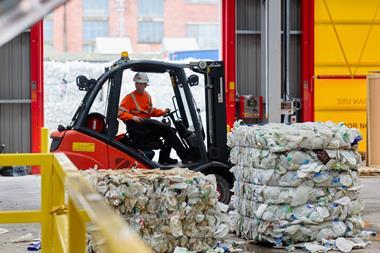One third of the world’s population already lives in water-scarce areas. And stocks of water are dwindling: not only because a burgeoning population needs to quench its thirst, but also to meet increasing agricultural demands for crop growth. Add to that the water demands of low-carbon alternatives to fossil fuels, including biofuels and hydrogen (see Chemistry World , May 2008, p12), and industry’s insatiable appetite for water, and it’s clear demand is rapidly overwhelming supply.
Many predict that the major conflicts of the coming century will be fought over water. And the unpredictable impacts of climate change mean that we cannot simply rely on surface water resources to continue to be replenished by rain.
Time to compromise
The issue is not just quantity, it’s quality. Urban pressure on water supplies means more and more people are quite literally tapping the same sources - and also that water treatment has to cope with a swathe of previously undiscovered pollutants. Many of these, including active pharmaceuticals, simply slip through traditional water treatment systems. More advanced purification systems are already in existence that are capable of removing almost all of them, but at what cost? There are questions to be answered about the impact of new pollutants before money is spent on removing them.
Only the best scientific advice will aid the development of good water management, which, in some cases is going to prove very expensive indeed. There will often be simpler solutions: it cannot be sensible for people in many developed countries to continue to use high quality, drinkable water to flush toilets and water lawns while more than one in six people throughout the world have no access at all to safe, clean drinking water. The scientific community must play a key role in deciding in which direction the money flows.
In the aquatic environment, we have already seen the effects of some wastewater compounds on ecosystems - certain hormones that we regularly flush away, for example, have been found to affect the development of fish, and to reduce their rates of reproduction. We have a moral obligation to monitor these effects and their causes closely. Only through rigorous and well coordinated environmental monitoring can we really know which compounds pose a serious threat to ourselves and our environment.
Less is more
The appetite for water is most voracious in big industry - and the chemical industry in particular. Companies are trying to fulfil their obligation to be wiser with water - recycling and reusing where possible. But it’s not all about reduction. Chemists are also using water as a greener and often far more effective replacement for some traditional solvents that, when it comes to commercial scale processes, create a huge environmental burden.
Where scientists simply will not accept the limitations imposed by Mother Nature, there are even efforts to control rainfall. The value of such weather modification attempts is still very much under question. But what is certain is that world leaders are going to call on chemistry increasingly to help manage the world’s most precious resource.
Victoria Gill, features editor












No comments yet